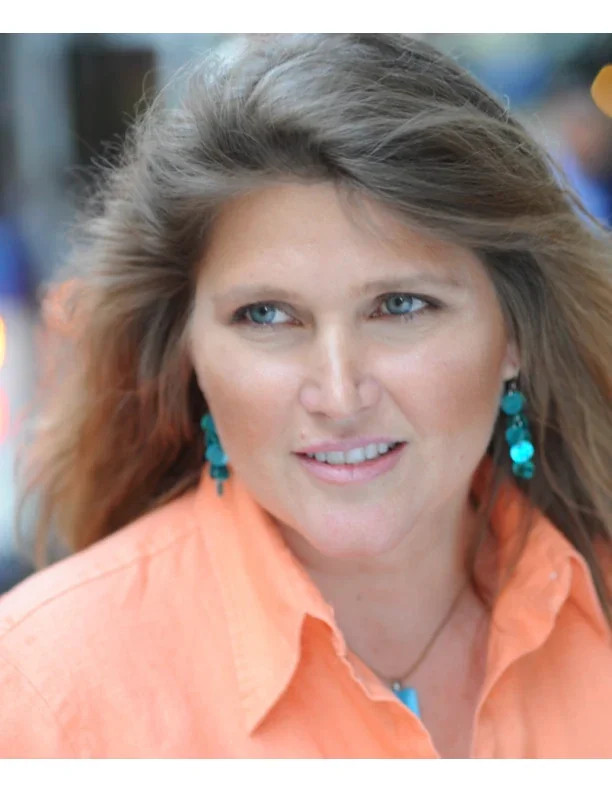According to the 2020 American Express "State of Women-Owned Businesses" report, women own 42 percent of all businesses in the U.S. and employ nearly 9 million people. Of those businesses, 5.4 million are majority-owned by women of color who, alone, employ 2.1 million people and generate $361 billion in annual revenues. And the numbers are growing.
If you're a woman with an idea and a passion, now might be a good time to ride that wave and take the plunge into entrepreneurship.

What do woman entrepreneurs need?
Before money, before settling on a business name, women need one thing more than any other to get started on a successful path to being a woman entrepreneur: permission. Permission from themselves to jump into their own futures. It's a mindset that puts aside fear and opens the door to experiences.
"Women need to stop waiting for permission or the next accolade to take the actionable step to get started," says Cait Scudder, seven-figure business coach, and TEDx speaker. "Mindset is the single biggest factor that stops women at the starting point, getting to that first six-figure level, or scaling up once the business is already going."
After giving yourself the go-ahead, here are three ways you can benefit from being a woman entrepreneur.
1. Available money
Federal and state governments give away millions of dollars every year to small businesses. Many of these grants are set aside specifically for women and minority women.
Local Women's Business Centers, part of the U.S. Small Business Administration (SBA), are one way to find these funding sources. GrantsforWomen.org is another source that keeps an up-to-date list of small business grants for women.
Private funding sources are also keen to help women. "Over the last 10 years," says Stephen Halasnik, co-founder and managing partner of Financing Solutions, "we've found that women-owned businesses are much better run than male businesses. Women tend to default less on their lines of credit. We show a default rate of 60 percent for male-owned businesses as compared to 40 percent for female-owned businesses."
2. Earmarked contracts
Each year, every federal government purchase between $10,000 and $250,000 is automatically set aside for small businesses when at least two competitors offer fairly priced products and services.
The U.S. government aims to award at least five percent of all federal contracting dollars to women-owned small businesses each year. Women have an advantage in that they can qualify under several special categories for favorable contract awards. For example, they can qualify as a Women-Owned Small Business (WOSB). They may also qualify as an Economically Disadvantaged Woman-Owned Small Business (EDWOSB) and 8(a) Small Business, Historically Underutilized Business Zone Small Business (HUBZone), or Service-Disabled Veteran-Owned Small Business.
States and municipalities also generally have set-asides women qualify for, so those avenues shouldn't be overlooked. In addition, large corporate projects that have government funding are also bound to the same set-asides.
3. Plenty of role models to learn from
Women of all ages, but especially younger women, can take advantage of mentors. "Our generation (baby boomers) didn't have role models," says Janet Zaretsky, founder of Empowered Women Enterprises, LLC, and co-founder of Impact Speaking Lab.
"Today's young women have role models of (woman) CEOs, VPs, and business owners. And they're willing to work for it. They're speaking up when things are unfair. And they're media-driven about this kind of thing. So it permits them to keep pushing." Scudder adds, "Any woman with $20 can become a millionaire just by listening to audiobooks and free podcasts, following people who put out incredible free content.
"Search 'business development for women' and you'll come up with hours and hours of free resources and low-cost programs to support you." Add to that the numerous Facebook groups and women business owner associations available, and women can be "absolutely transformed by learning from people who forged the path," says Scudder.
Bouncing back from inevitable failure
Women must realize "failure is feedback," says Scudder. It's going to happen, and you need to accept it, reassess, and move on.
"Just keep going," advises Scudder. Take a bigger view of your entrepreneurial journey, and don't fixate on what's happening at the moment. "It's the contraction before the big expansion. So, don't interpret challenges, roadblocks, difficulties as the destination." Instead, use your advantages, "learn to approach your business in that way, and you're not only going to experience more success in the long haul, you're going to experience a lot more enjoyment in the process."

